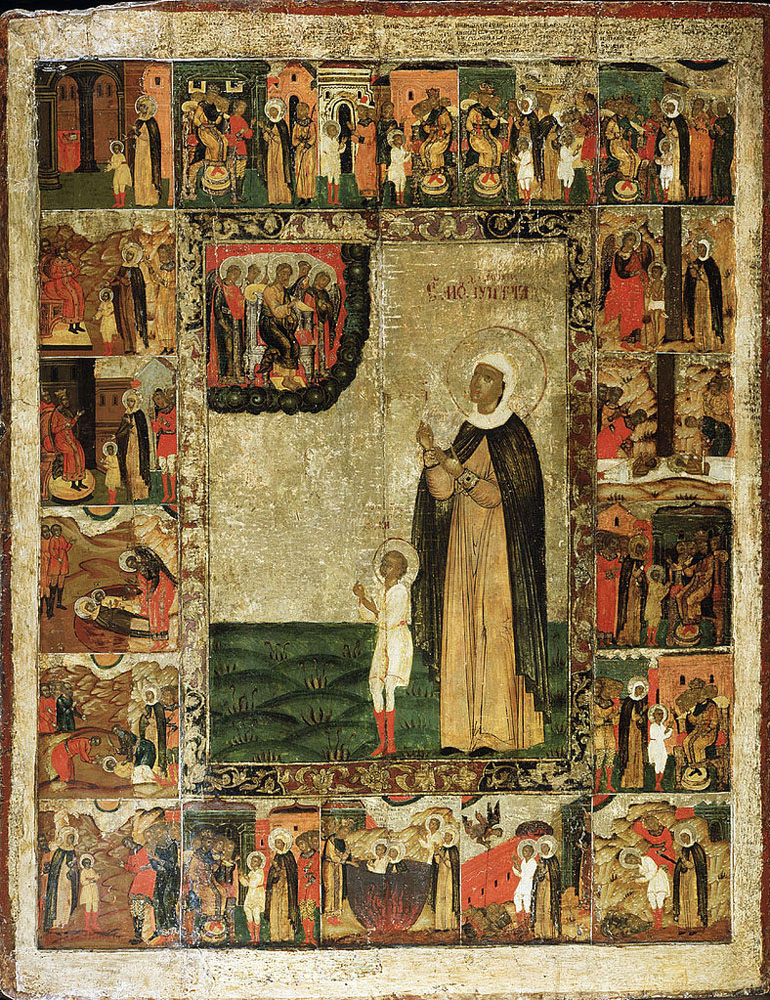Then the provost took the child in his arms, and Juliet his mother refusing to do sacrifice, he made her to be scourged with raw sinews. And when the child saw his mother beaten he wept bitterly and made a lamentable noise, but the provost took it in his arms and danced it upon his knees, and would fain wanted to please the child with kissings and fair words.
The child, alway beholding his mother, abhorred the kissings of the provost, and turned his head away from him with great indignation and scratched his face with his nails, and gave his cries consonant into his mother, as he should have said: "And I am also Christian." Then he bit the provost, and wrestling with him all to-scratched severely scratched him.
Then the provost, having indignation hereof and in a great anger, threw down the child off the steps whereas where he sat in judgment, that the tender brain fell abroad out of his head upon the steps. Then Juliet seeing her son go to heaven tofore her, gave thankings unto God, and she was thereof right glad. Then it was commanded that Juliet should be flayed, and burning pitch cast on her, and at the last her head to be smitten cut off.
And it is found in another legend that Quirine despised the tyrant as well when he glosed spoke sweetly to him as when he blamed him, and confessed him announced himself to be Christian, howbeit that even though he was overyoung to speak but the Holy Ghost spake in him. When then the provost demanded of him who had so taught him, he answered and said: "O thou provost I marvel much am very amazed at thy folly which seest you who see me so young of age, not being yet three years old, and demandest you ask who hath taught me this divine wisdom; thou mayst clearly see that it cometh from God."
When the child was beaten he cried: "I am christian"; and the more that he cried, the more strength among the torments he received. And the judge did do dismember ordered the dismembering of the mother with the child, and all to-hew cut them in pieces, and because so that their members the parts of their bodies should not be buried of by the Christian people, he commanded that they should be cast and disperpled dispersed abroad. But notwithstanding nevertheless they were of by an angel gathered together, and in the night buried by the Christian people; whose bodies were showed in the time of Constantine the Great when peace was in the Church, by a maid which had been one of her chamberers, that then yet lived, and were had of held by all the people in great devotion. They suffered martyrdom about the year of our Lord three hundred and thirty under Alexander.
Golden Legend Table of Contents
Christian Iconography Home Page

St. Julitta commends her son to Christ. (See the description page for this image and the page on images of these saints.)
This text was taken from the Internet Medieval Source Book. E-text © by Paul Halsall. Annotations, formatting, and added rubrics by Richard Stracke. Permission is granted for electronic copying, distribution in print form for educational purposes and personal use. If you do reduplicate the document, indicate the sources. No permission is granted for commercial use.